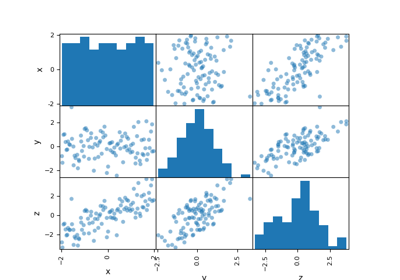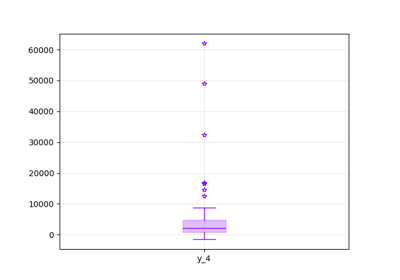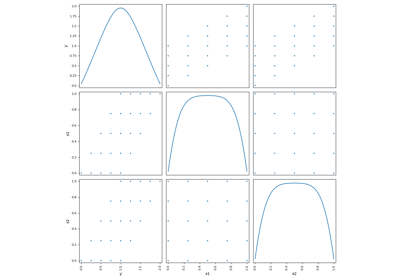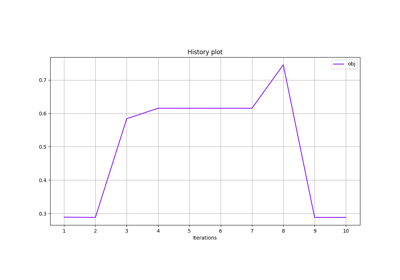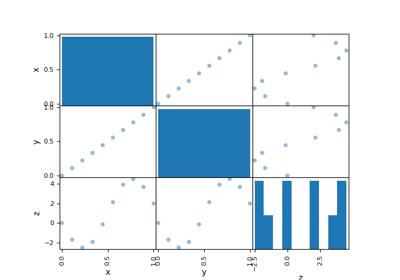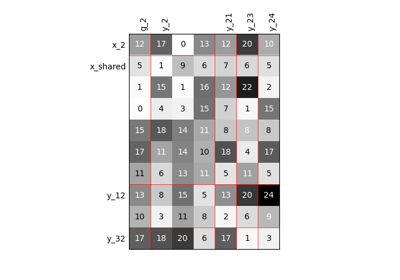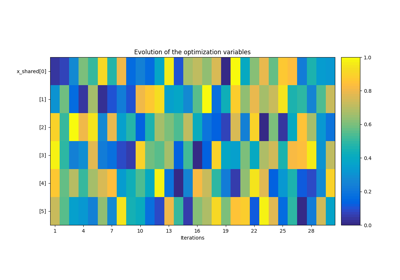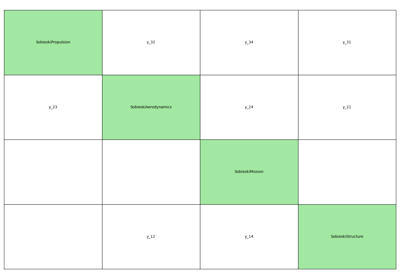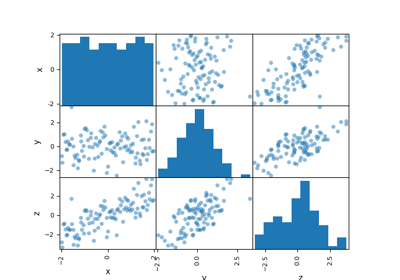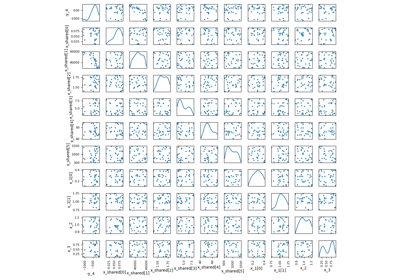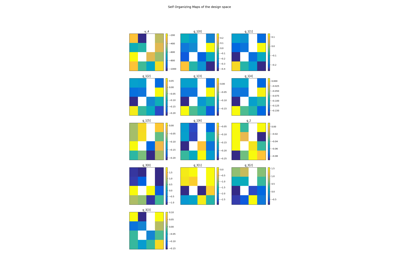doe_scenario module¶
A scenario whose driver is a design of experiments.
- class gemseo.core.doe_scenario.DOEScenario(disciplines, formulation, objective_name, design_space, name=None, grammar_type=GrammarType.JSON, maximize_objective=False, **formulation_options)[source]
Bases:
ScenarioA multidisciplinary scenario to be executed by a design of experiments (DOE).
A
DOEScenariois a particularScenariowhose driver is a DOE. This DOE must be implemented in aDOELibrary.Initialize self. See help(type(self)) for accurate signature.
- Parameters:
disciplines (Sequence[MDODiscipline]) – The disciplines used to compute the objective, constraints and observables from the design variables.
formulation (str) – The class name of the
MDOFormulation, e.g."MDF","IDF"or"BiLevel".objective_name (str | Sequence[str]) – The name(s) of the discipline output(s) used as objective. If multiple names are passed, the objective will be a vector.
design_space (DesignSpace) – The search space including at least the design variables (some formulations requires additional variables, e.g.
IDFwith the coupling variables).name (str | None) – The name to be given to this scenario. If
None, use the name of the class.grammar_type (MDODiscipline.GrammarType) –
The grammar for the scenario and the MDO formulation.
By default it is set to “JSONGrammar”.
maximize_objective (bool) –
Whether to maximize the objective.
By default it is set to False.
**formulation_options (Any) – The options of the
MDOFormulation.
- to_dataset(name=None, categorize=True, opt_naming=True, export_gradients=False)[source]
Export the database of the optimization problem to a
Dataset.The variables can be classified into groups:
Dataset.DESIGN_GROUPorDataset.INPUT_GROUPfor the design variables andDataset.FUNCTION_GROUPorDataset.OUTPUT_GROUPfor the functions (objective, constraints and observables).- Parameters:
name (str | None) – The name to be given to the dataset. If empty, use the name of the
OptimizationProblem.database.categorize (bool) –
Whether to distinguish between the different groups of variables. Otherwise, group all the variables in
Dataset.PARAMETER_GROUP`.By default it is set to True.
opt_naming (bool) –
Whether to use
Dataset.DESIGN_GROUPandDataset.FUNCTION_GROUPas groups. Otherwise, useDataset.INPUT_GROUPandDataset.OUTPUT_GROUP.By default it is set to True.
export_gradients (bool) –
Whether to export the gradients of the functions (objective function, constraints and observables) if the latter are available in the database of the optimization problem.
By default it is set to False.
- Returns:
A dataset built from the database of the optimization problem.
- Return type:
- EVAL_JAC = 'eval_jac'
- N_SAMPLES = 'n_samples'
- cache: AbstractCache | None
The cache containing one or several executions of the discipline according to the cache policy.
- data_processor: DataProcessor
A tool to pre- and post-process discipline data.
- exec_for_lin: bool
Whether the last execution was due to a linearization.
- formulation: MDOFormulation
The MDO formulation.
- formulation_name: str
The name of the MDO formulation.
- input_grammar: BaseGrammar
The input grammar.
- jac: MutableMapping[str, MutableMapping[str, ndarray | csr_array | JacobianOperator]]
The Jacobians of the outputs wrt inputs.
The structure is
{output: {input: matrix}}.
- name: str
The name of the discipline.
- optimization_result: OptimizationResult | None
The optimization result if the scenario has been executed; otherwise
None.
- output_grammar: BaseGrammar
The output grammar.
- re_exec_policy: ReExecutionPolicy
The policy to re-execute the same discipline.
- residual_variables: dict[str, str]
The output variables mapping to their inputs, to be considered as residuals; they shall be equal to zero.
- run_solves_residuals: bool
Whether the run method shall solve the residuals.
Examples using DOEScenario¶
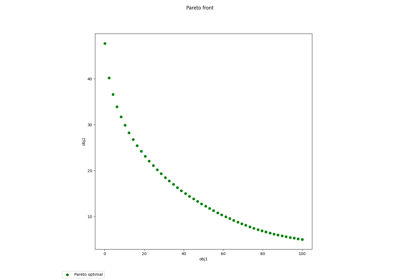
Pareto front on the Binh and Korn problem using a BiLevel formulation
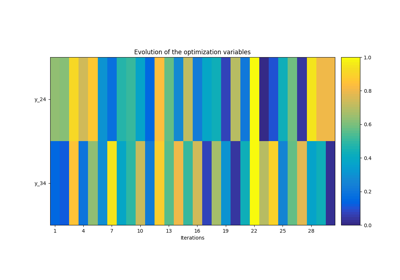
Simple disciplinary DOE example on the Sobieski SSBJ test case

